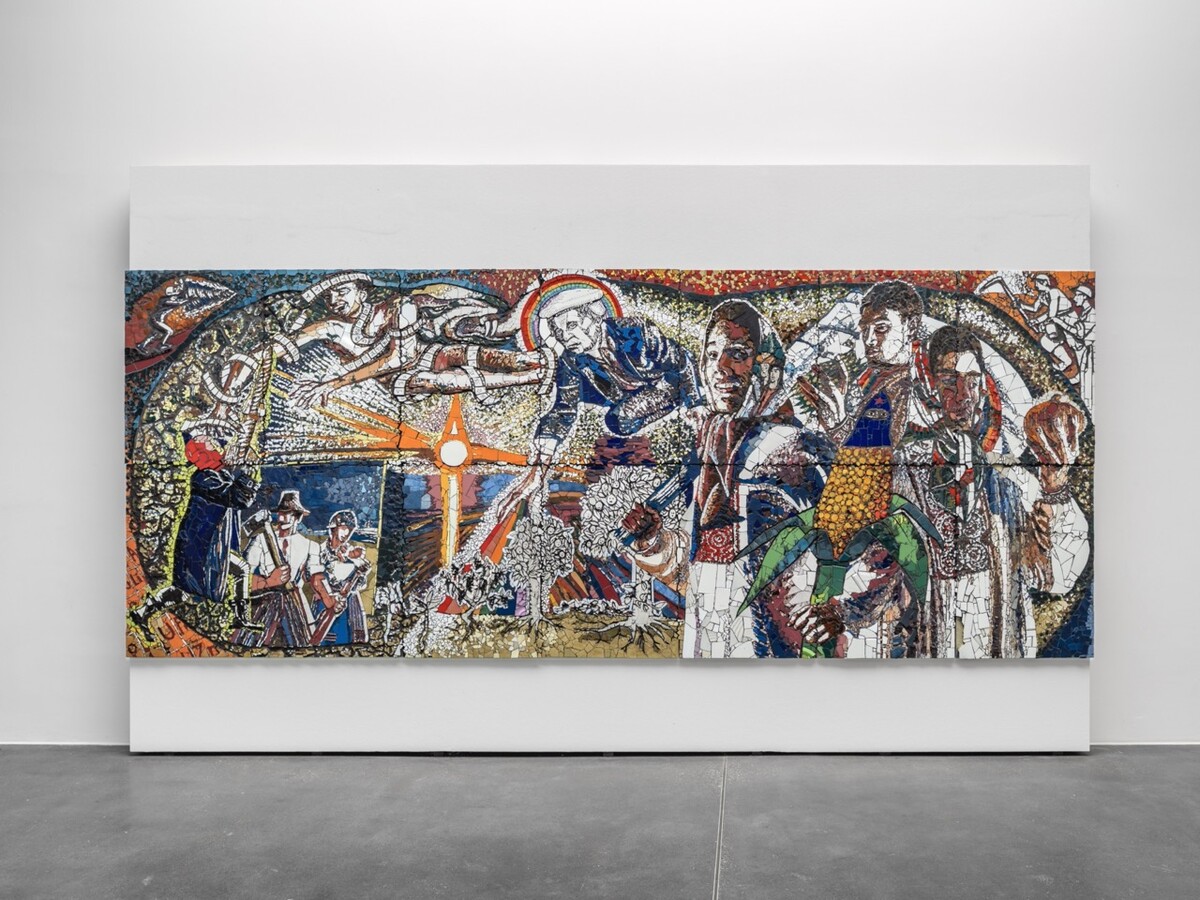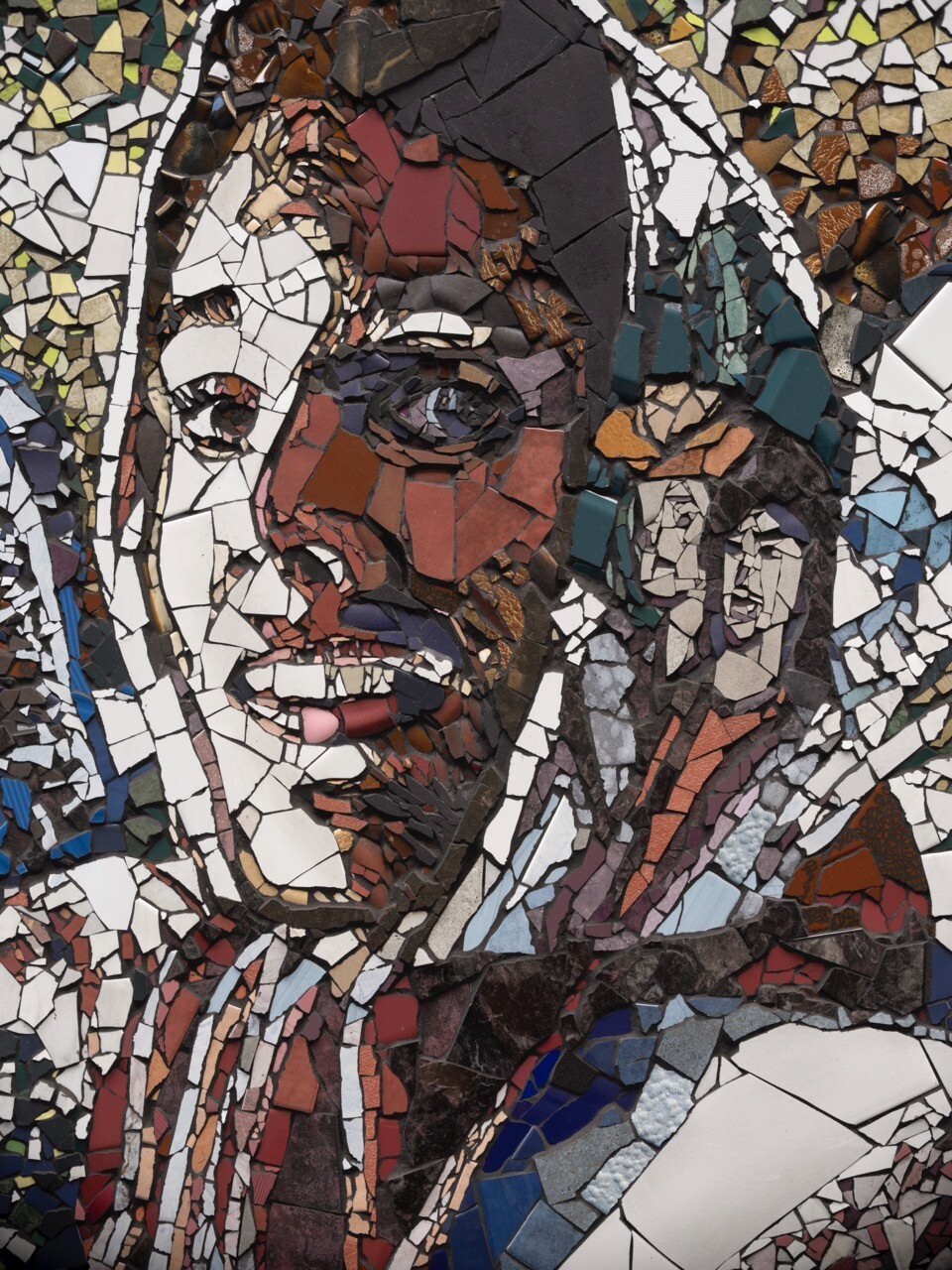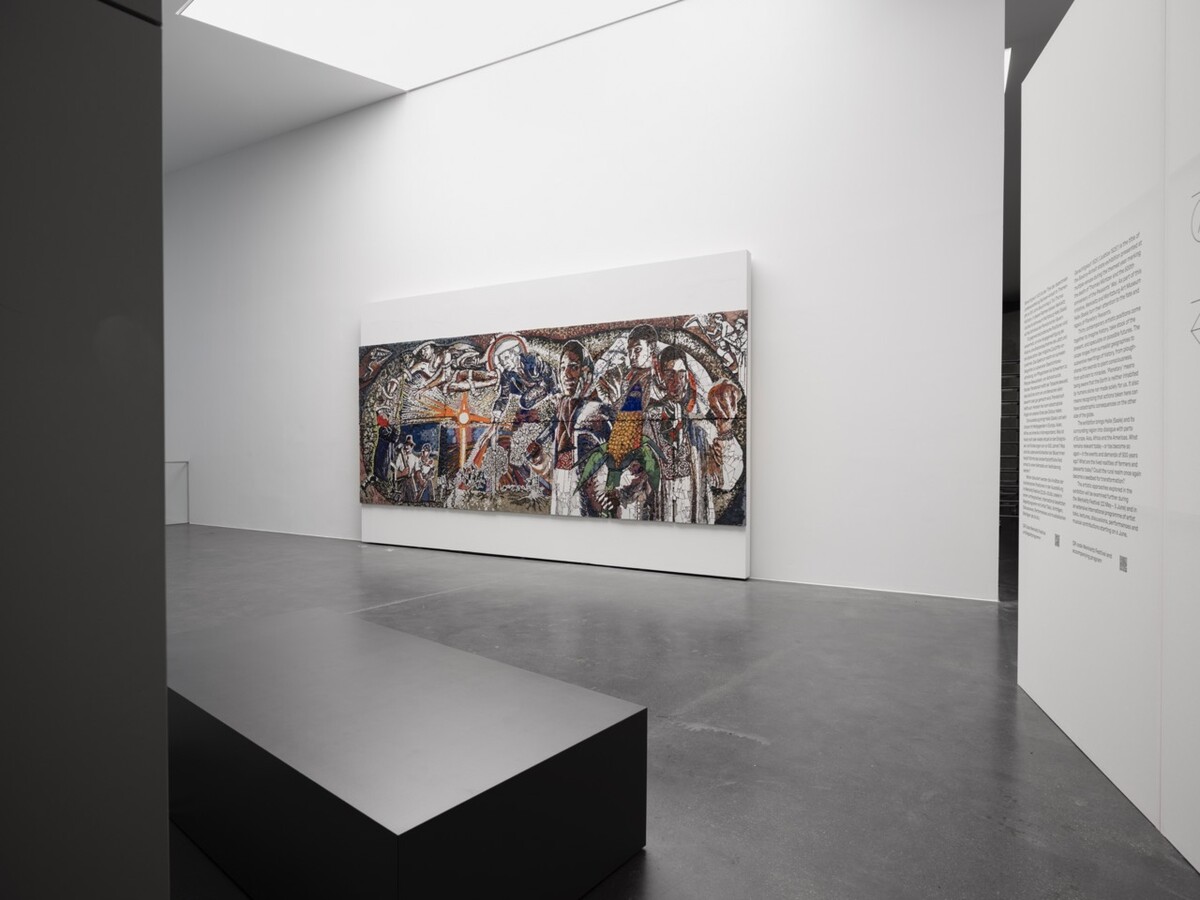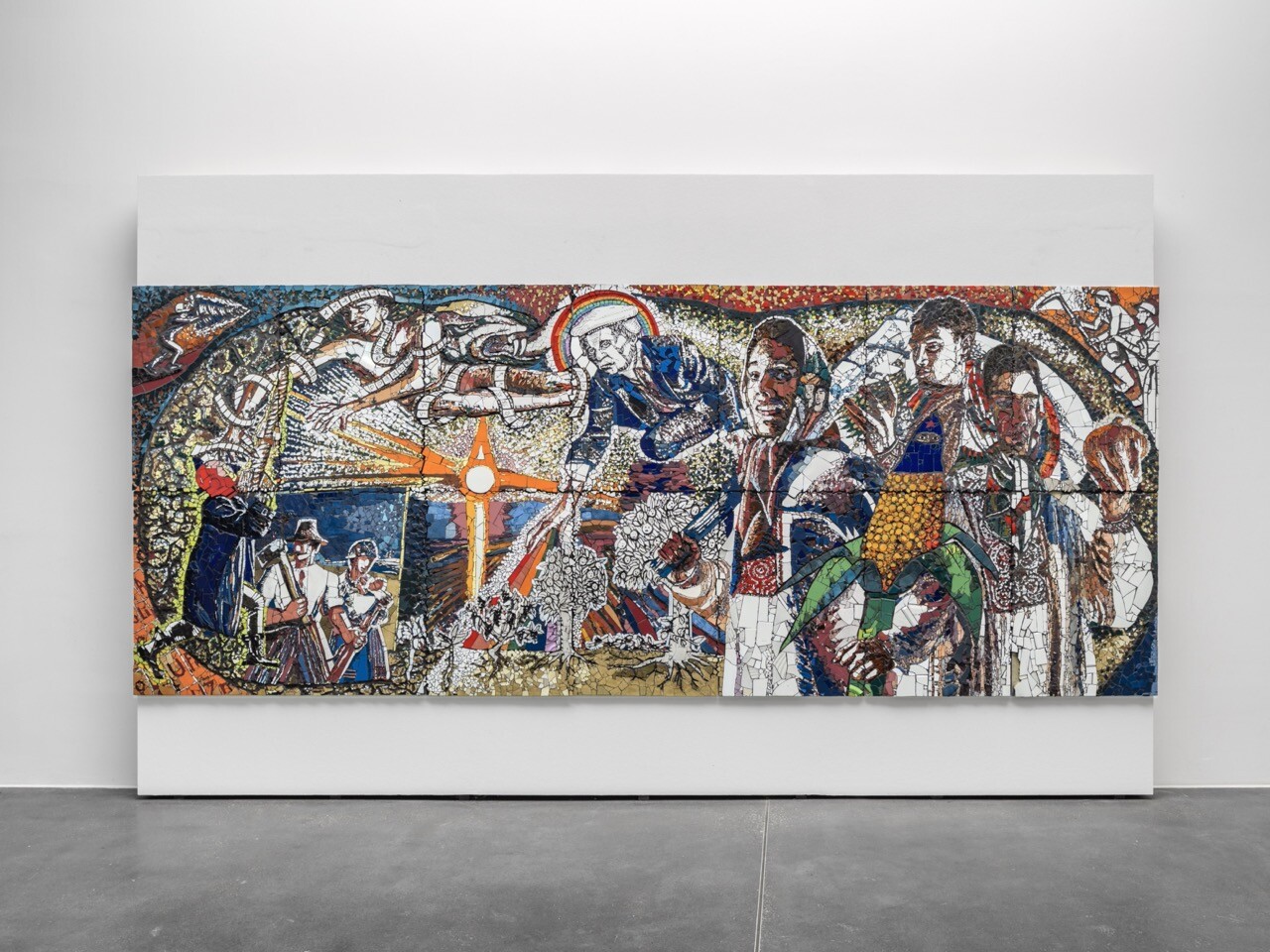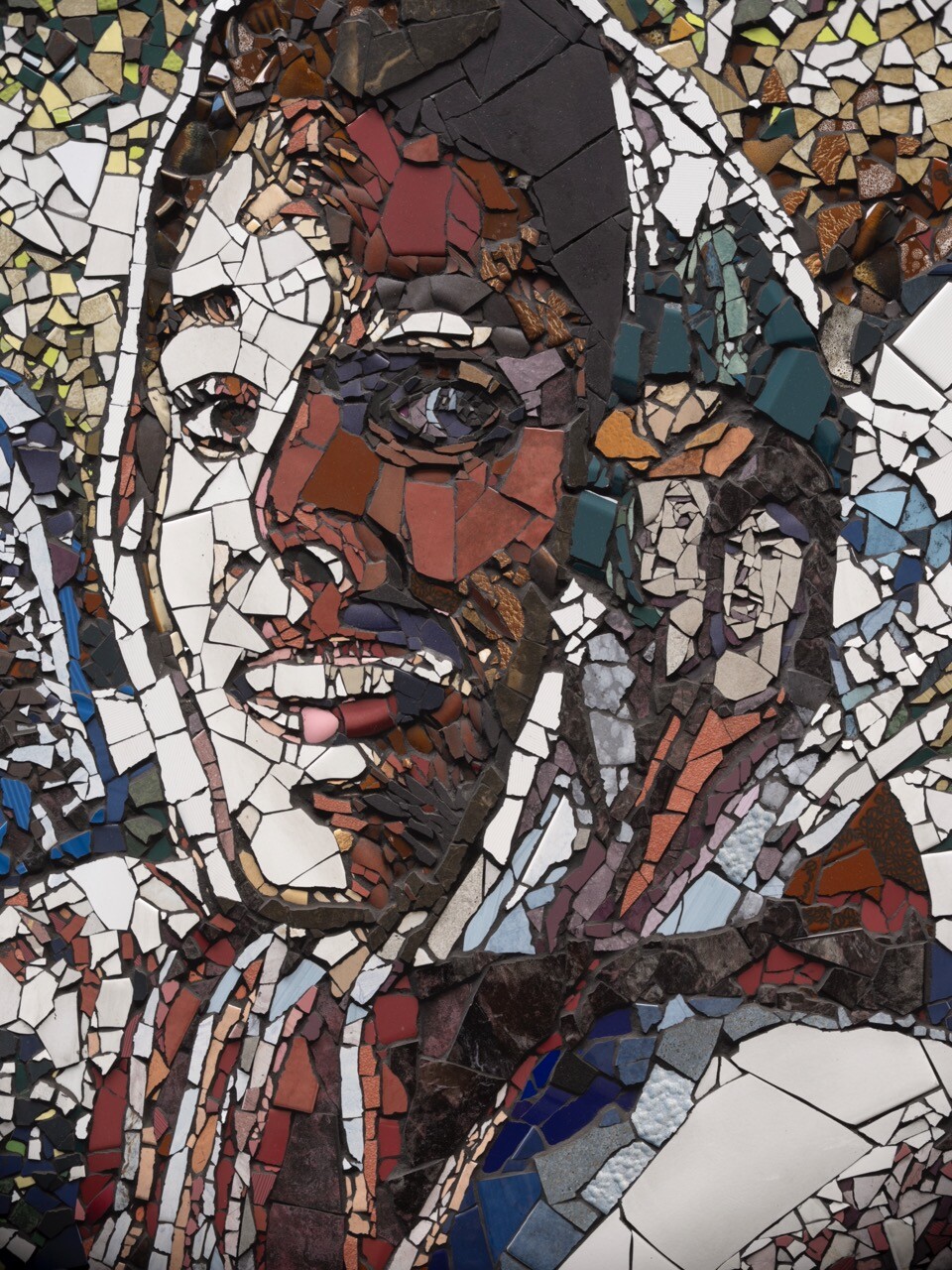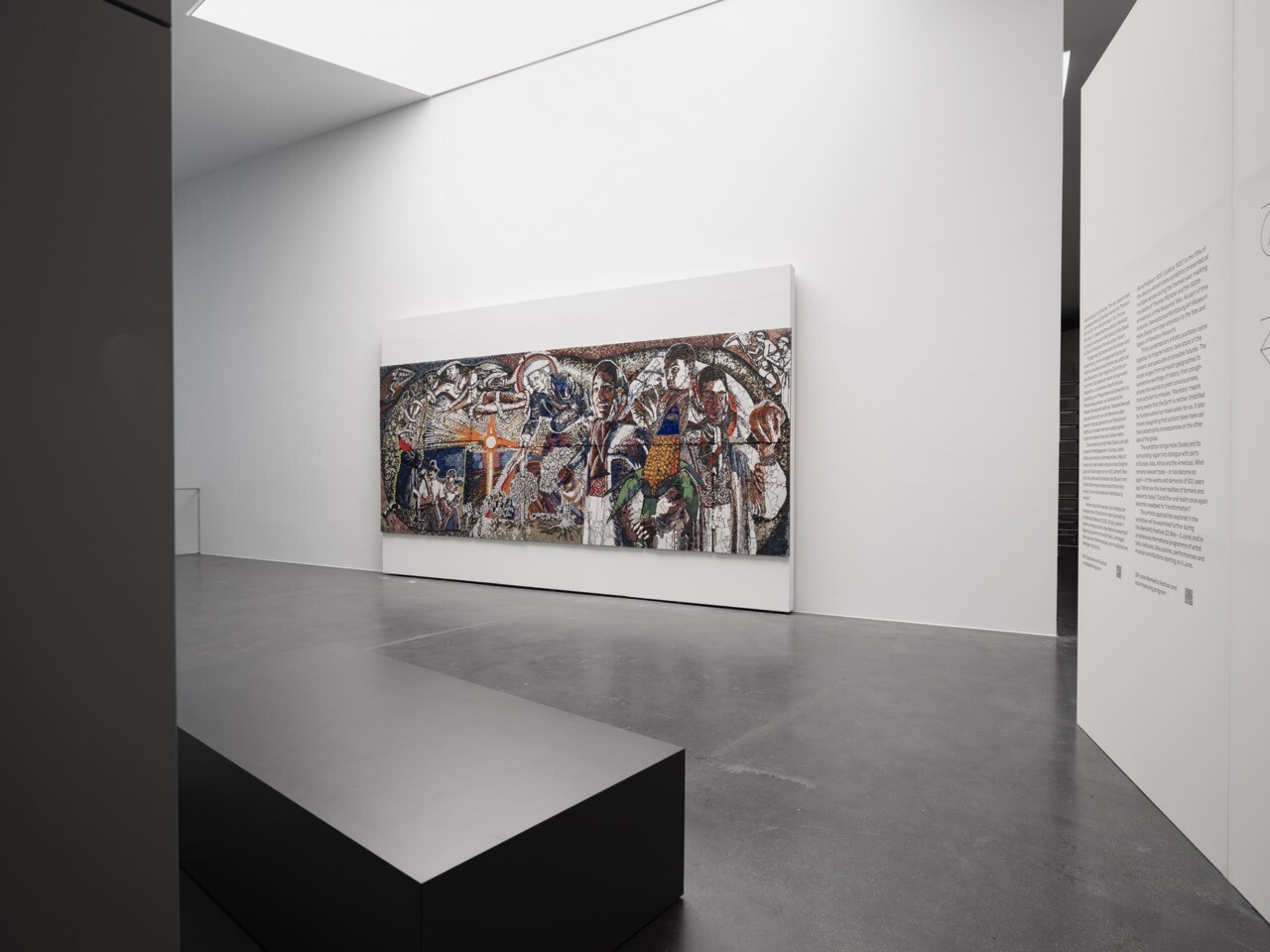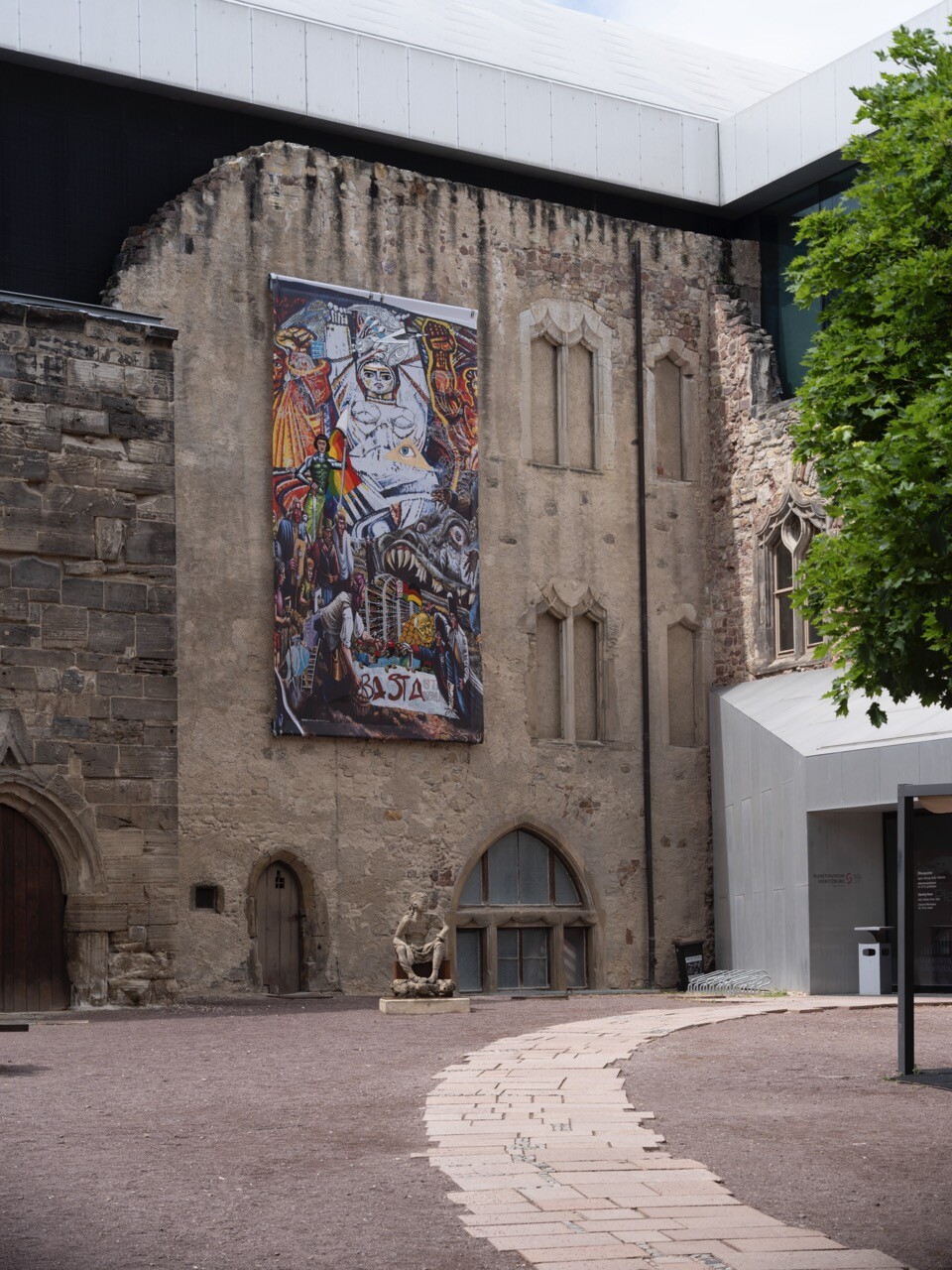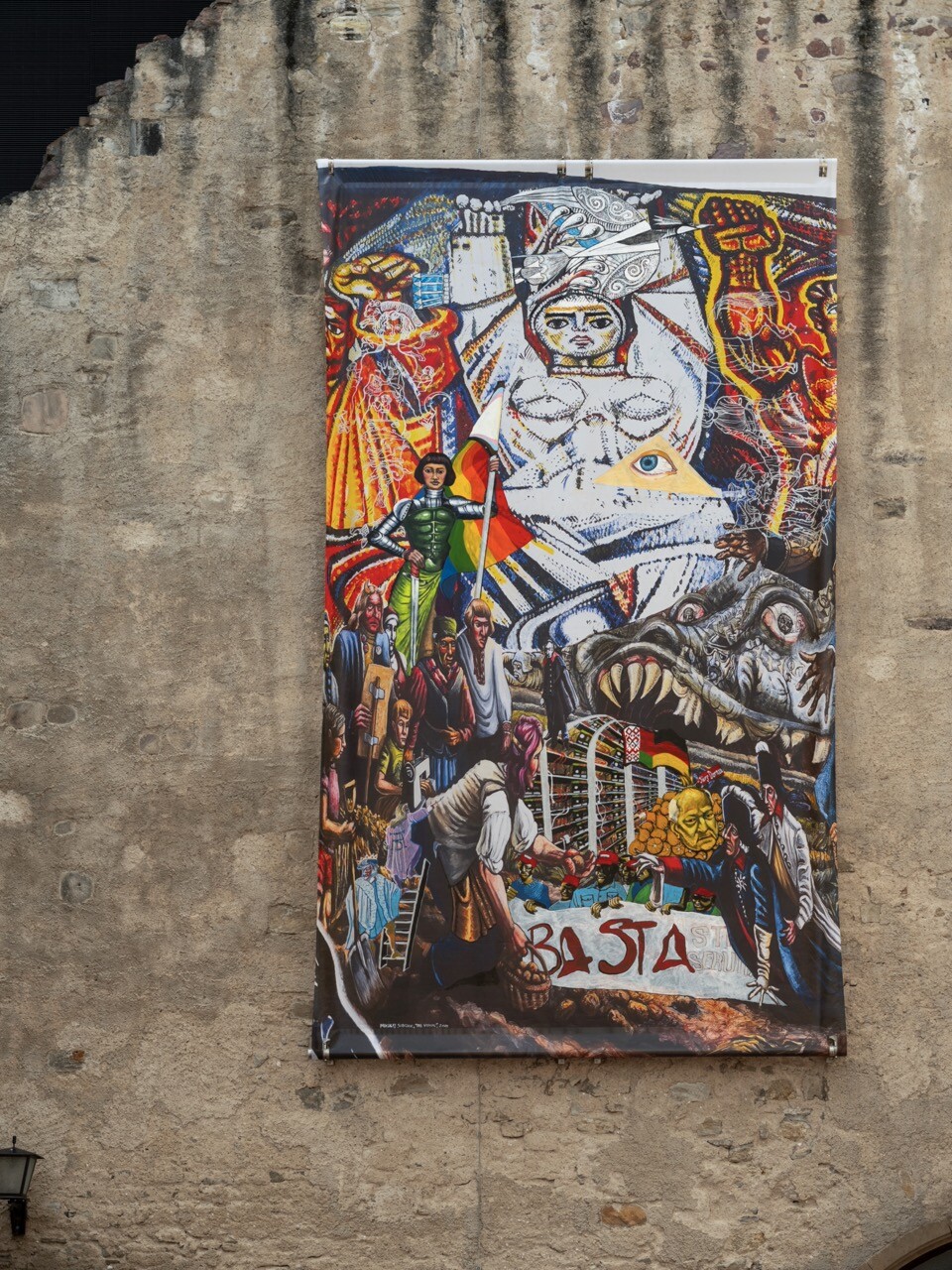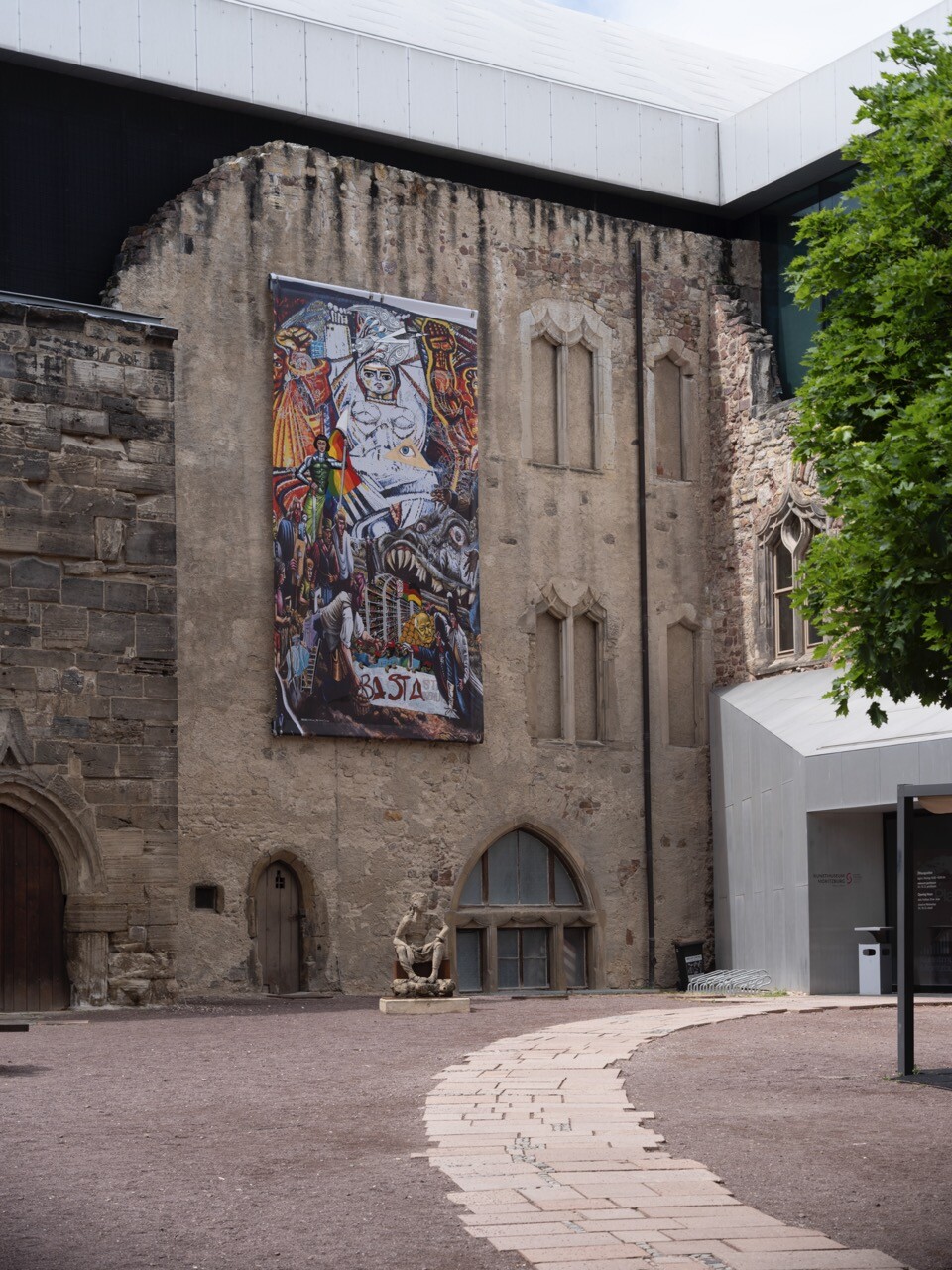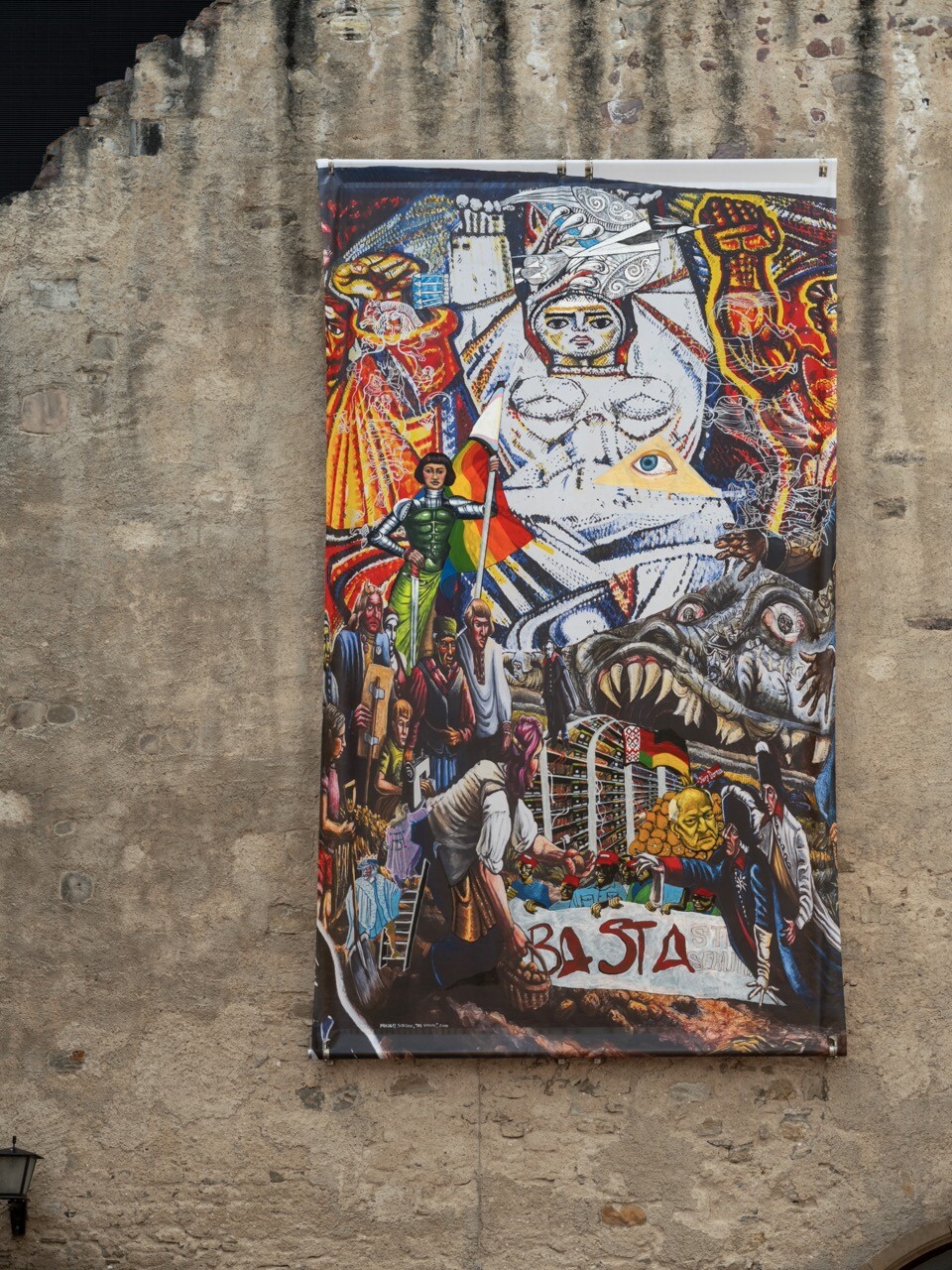Media
At the heart of this mosaic by Mikołaj Sobczak (born 1989 in Poznań, lives in Düsseldorf) stand corn, beans and squash – sacred crops in Indigenous agricultural traditions. Their cultivation method, known as Three Sisters, links a Native American agricultural practice with Anton Chekhov’s play in which the characters long to escape their circumstances. In the mosaic, the sisters wear embroidered shirts from eastern Poland and Ukraine adorned with astrological sigils, blending peasant wisdom with cosmic rhythms. They appear alongside symbols of MST, Brazil’s Landless Workers’ Movement, and the rainbow flag of the Peasants’ War. Also depicted are scenes of metal and rare earth mining, alluding to techno-feudalism and corporate billionaires. At the centre, the ‘decapitated head’ of Thomas Müntzer radiates a rainbow-coloured halo. Müntzer’s vision of land and wealth redistribution recurs like an uroboros – a serpent devouring its own tail in a continuous cycle of destruction and renewal.
The mosaic was made in collaboration with Paulina Garbiec.
Solar Peasants, Mikołaj Sobczak
Mosaic, 2025
Media
“I understood that Polish heritage and legacy are also my heritage and legacy, even if I profoundly disagree with them,” says Mikołaj Sobczak (born 1989 in Poznań, lives in Düsseldorf). His erudite and meticulously rendered counter-historical paintings challenge dominant narratives by reframing them through emancipatory lenses, including transgender and peasant perspectives. Art-historical references and moments from countercultural movements merge into an explosive and queer language of myth-making. In his reproduction of a fragment from Robert Warthmüller’s 1886 monumental historical painting Der König überall (‘The King is Everywhere’), Sobczak juxtaposes Frederick II inspecting a potato harvest with elements drawn from Ukrainian artist Alla Horska’s Victory Banner and one of her mosaics in war-torn Mariupol. Adorned with site-specific additions, the banner on the courtyard facade weaves a loop of recurring patterns – domination, exploitation, erasure – and highlights the enduring power of even the smallest acts of resistance.
The Vision, Mikołaj Sobczak
Banner, 2022–2025
